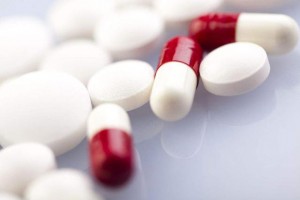When there is inflammation in the body, people will choose some anti-inflammatory drugs. In fact, there are anti-inflammatory drugs and anti-bacterial drugs in life. Many people will confuse the two and think that the requirements of these two drugs are the same.
For the invasion of some pathogenic microorganisms such as bacteria and some uncomfortable symptoms caused by human body, we can call it infection phenomenon, and generally choose to use antibacterial drugs.
The occurrence of inflammation in the body is not the same as the occurrence of infection. The inflammatory reaction is mainly a pathological process dominated by the body’s defense response to the stimulation of various harmful factors.
Such harmful factors include a wide range, such as physical factors such as high temperature and low temperature, chemical factors such as strong acid and alkali, and biological factors such as viruses and bacteria. These factors that can cause damage to cells and tissues may cause inflammation.
However, in fact, there are only two kinds of anti-inflammatory drugs that are actually used in the clinic. One is non steroidal anti-inflammatory drugs represented by ibuprofen, and the other is steroidal anti-inflammatory drugs such as glucocorticoids.
There are only two kinds of anti-inflammatory drugs in the real sense. Don’t confuse them with antibacterial drugs
First: non steroidal anti-inflammatory drugs
In clinic, there are many kinds of nonsteroidal anti-inflammatory drugs, such as ibuprofen, diclofenac sodium, meloxicam and so on.
These drugs mainly inhibit the synthesis of prostaglandins and exert their activity by inhibiting cyclooxygenase. The combination of anti-inflammatory drugs and cyclooxygenase in vivo will paralyze the activity of enzymes and play a corresponding anti-inflammatory effect.
However, there are many cases of adverse reactions of nonsteroidal anti-inflammatory drugs, which are also limited in clinical use. When they exert their efficacy, they will also cause certain damage to the digestive system, which is more serious, and will also damage the kidney.
For some common digestive system reactions, such as peptic ulcer and indigestion, nonsteroidal anti-inflammatory drugs will destroy the mucosal barrier of the digestive tract after taking drugs.
Therefore, when taking this kind of drugs, you can take some drugs that protect the gastric mucosa, such as misoprostol and proton pump inhibitor, which can reduce the damage to the stomach and prevent adverse reactions in the stomach.
When the blood volume decreases, prostaglandins will maintain some functions of the kidney through the role of blood vessels. After using this kind of drugs, the synthesis of prostaglandins will be reduced, so this effect will be damaged.
If you take these anti-inflammatory drugs regularly, you will also increase the risk of stroke. Therefore, for the elderly, when taking these anti-inflammatory drugs, you must pay attention to relevant matters.
For example, reasonably control the dosage of drugs and avoid taking them together with other drugs. When the doctor prescribes such drugs, he must explain his details to the doctor to prevent adverse effects on the body.
The second kind: steroidal anti-inflammatory drugs
Glucocorticoids can prevent some inflammatory cells such as lymphocytes and macrophages from moving in the inflammatory site, or the degree of congestion and the permeability of capillaries show a downward trend, so as to ensure the stability of lysosomal membranes.
After taking this kind of anti-inflammatory drugs, it can prevent more damage to the tissue and relieve the adhesion of the tissue to a certain extent.
However, such anti-inflammatory drugs also need to be used with caution. If they are used for a long time, or if they are not used properly, they are prone to some adverse reactions, such as reducing the immunity of the human body.
Long term use will also affect the balance of water and electrolyte, which is easy to cause disorder, edema or hypokalemia.
Glucocorticoids can promote the decomposition of proteins and inhibit the synthesis of proteins. Therefore, when a wound occurs in the body, the healing speed is very slow.
Moreover, this drug sometimes has a certain dependence. When it is suddenly stopped, some uncomfortable symptoms will appear, such as hypotension, hypoglycemia, anorexia and so on.
How much do you know about antibacterial drugs?
The antibacterial drugs we often talk about are mainly some chemical substances produced by microorganisms or higher animals and plants in the process of life, which can play the role of anti pathogenic microorganisms.
Antimicrobial agents will not directly exert their effects on the adhesive reaction, but will cause great damage to the pathogenic microorganisms that cause the inflammatory reaction.
Some of the common antibiotics in the clinic are macrolides, β- Lactams, etc. when it comes to penicillin cephalosporins, I believe many people are familiar with them. When using these drugs, they need to do relevant skin tests. These two drugs belong to β- Lactams.
Macrolide drugs, such as azithromycin and erythromycin, are commonly used, which are time-dependent and can achieve relevant antibacterial effects when taken 3-4 times a day.
Azithromycin will superimpose the antibacterial effect when the drug concentration changes, and usually it can achieve the relevant effect in 1 ~ 2 times / day.
The reason why these anti-inflammatory drugs and anti-bacterial drugs are easy to go bad is that anti-inflammatory drugs can also destroy pathogenic microorganisms caused by inflammatory reactions. However, there are many factors that trigger inflammatory reactions, and pathogenic microorganisms are only one of them.
Post time: Sep-02-2022






